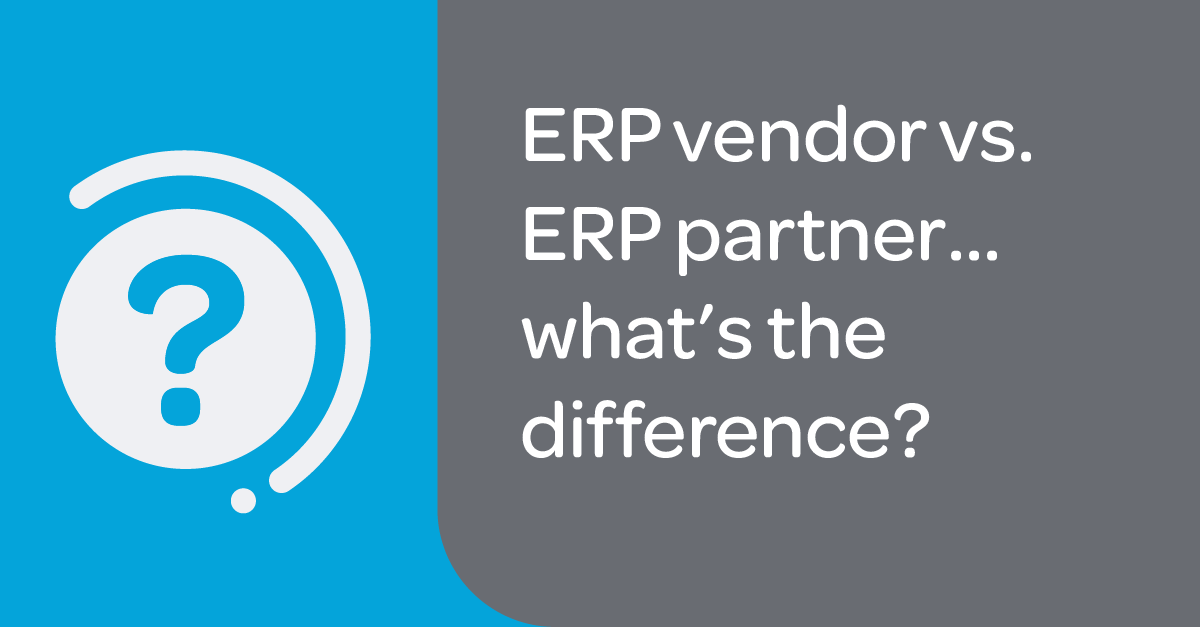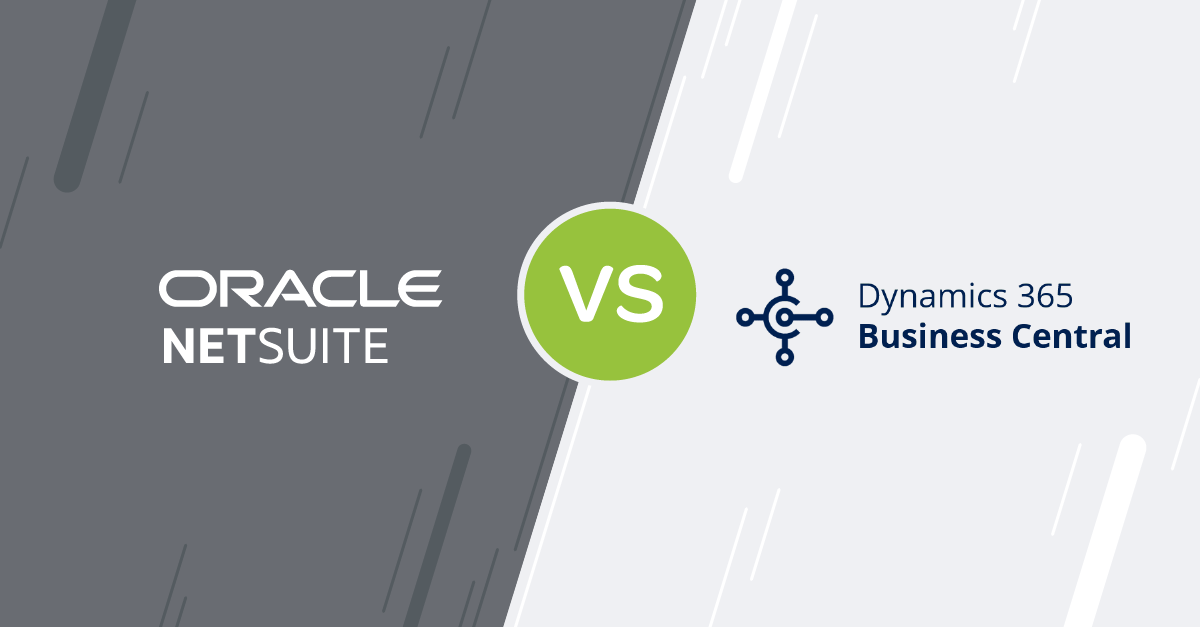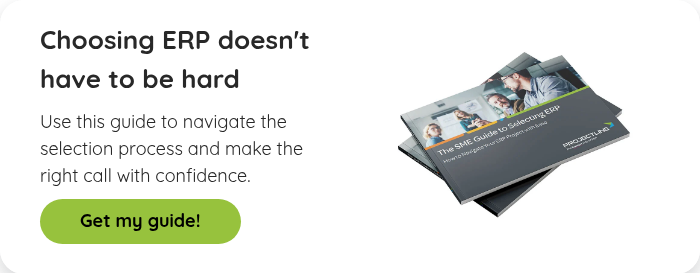Blog
Share this
What is an ERP Vendor and How is it Different From an ERP Partner?

by Jalene Ippolito on July 30, 2020
When you think of the key stakeholders in your ERP selection process, it’s natural to focus first on your internal stakeholders – ownership, senior management, accounting, sales, etc. But there’s also an external stakeholder group that’s equally important to the success (or failure) of your project. This group includes the ERP vendor, ERP partner and any third-party solution providers. You should give as much attention to evaluating these key players as you give to the solution itself.
What’s the role of the ERP vendor?
The vendor is the company developing, publishing and maintaining your ERP software. They’re the ones responsible for supporting ongoing product development, including new features, bug fixes, etc. Given the investment you’re making in your system, you’ll want to do your research on the vendor to make sure they’re stable and have a good track record. Here are just a few questions you should answer:
- How long have they been around?
- How many customers do they have?
- What are people saying about their products?
- Do they have a library of training resources available online?
- How long has the software been around? Is it a new addition to their product mix?
In the small to mid-size market, most vendors will sell their products through a partner network (which we’ll look at next). But there are some that sell direct to customers, particularly if you’re looking at vertical ERP solutions. While it can be simpler only having one relationship to manage, think about what you might do if the relationship with your vendor goes sideways after you implement the software. Your options will be limited – if you can’t repair the relationship, you could be forced to change ERP solutions altogether.
What’s the role of the ERP implementation partner?
The ERP partner, sometimes referred to as a Value Added Reseller (VAR), sells, implements and supports the software. Imagine you’re renovating your kitchen – you’ll likely call an expert to help you assess your needs and provide recommendations for the project. They’ll source the right materials, work with the subcontractors and handle the heavy lifting, with input from you to achieve your desired result.
In the context of an ERP project, your partner is the renovation expert. They’ll leverage their experience to design and implement a solution that accomplishes your business goals. And over time, your ERP partner will provide ongoing support and help you build out the system as the need arises.
Where it’s necessary, they’ll source the best third-party solutions that meet your requirements to round out the solution. These solutions go by different names – in the SAP Business One space, these are called Software Solution Partners (SSPs). In the NetSuite world, they're called SuiteApps. Whatever the name, they're another part of your external stakeholder group. Your ERP partner is responsible for managing the relationship between you, the vendor and third-party providers. This can be a significant advantage – if you’re dealing directly with the vendor, you’re likely to be lost in a sea of customers. The right partner will have strong ties with the vendor, allowing them to advocate for you.
Why is a strong ERP partner so important?
If you’ve ever had a home renovation project gone wrong, you’ll understand the value of a reliable contractor that does quality work. Now, instead of renovating your kitchen, imagine you’re renovating the whole house. If you partner with the right people, your project will have a higher chance of success with less pain along the way.
The same principle applies to selecting an ERP partner, but it’s even more important. We’re talking about the core system that will run your entire business. You need a partner you can trust to have your best interest in mind. Together, you should have a goal of mutual success that aligns the technology to your business objectives. This doesn’t just apply to your initial implementation; you want a partner that can support you over time and take you beyond what you thought was possible with your ERP system.
Share this
Stay in the Know!
Join other SMEs who receive our monthly ERP insights, tips and best practices.
You may also like

ERP Funding for Canadian Businesses

Should You Work with a NetSuite Implementation Partner or Go Direct?




